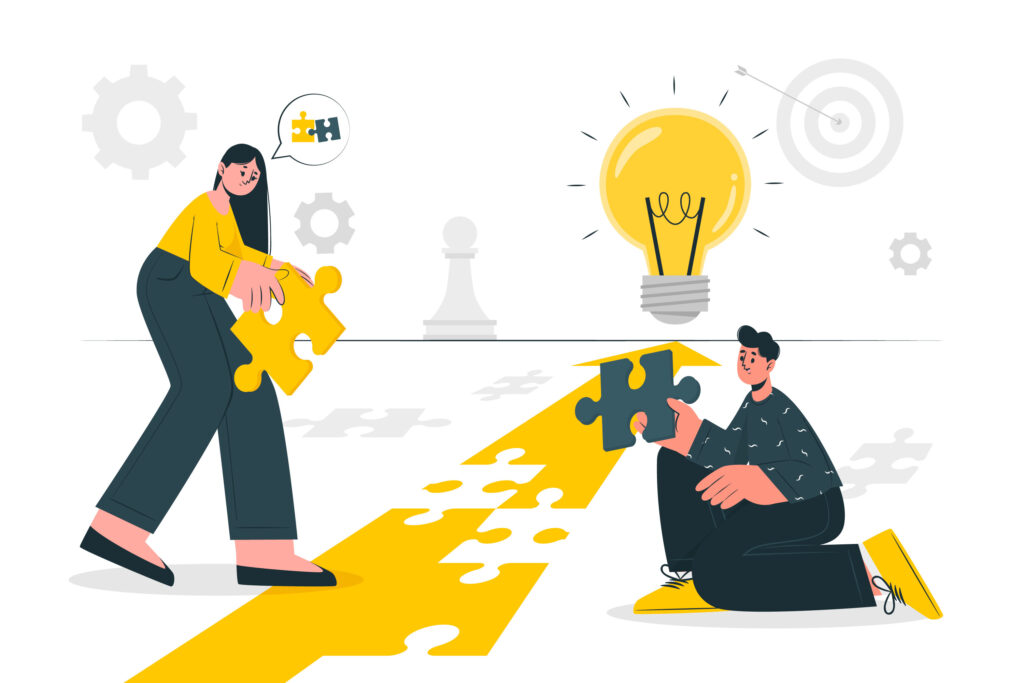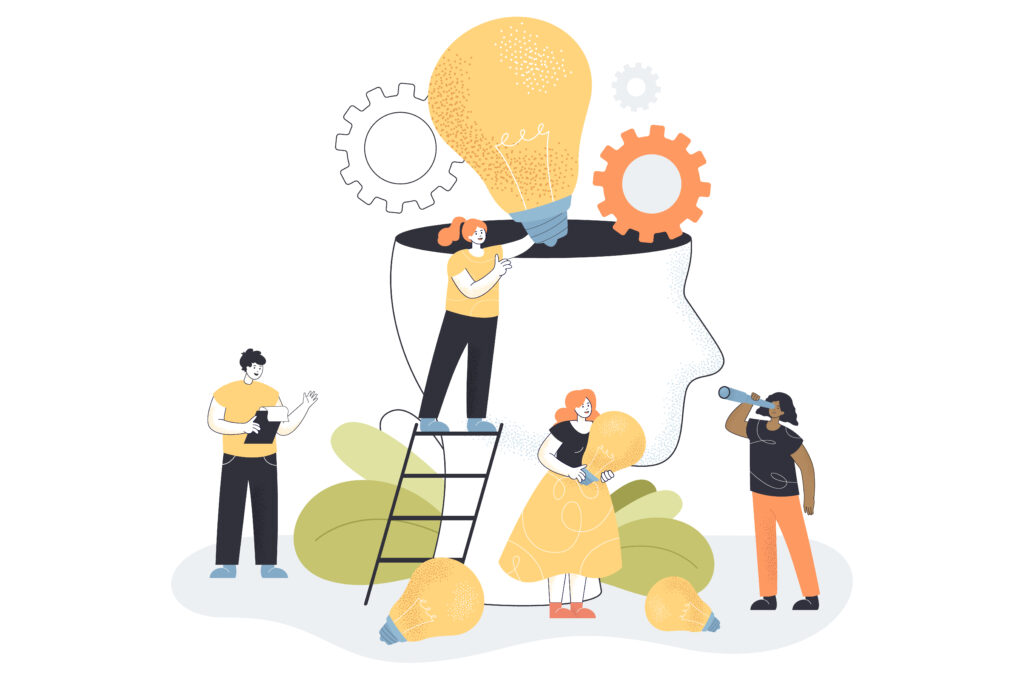
Table of Contents
ToggleIntroduction to problem-solving skills for students
Problem-solving skills for students: Recently, I understood as a soft skill trainer that this skill is very rarely taught to students. From childhood, we come up with a lot of skills, but along with that, there is one thing: problem-solving.
It was in 2011; that was my final year in my Master’s, and one of the resource persons who came to give a lecture spoke about problem-solving skills, why they are important for students, and how they are going to have an impact once you join an organization that is when I heard that problem-solving is a skill that we need to cultivate.
later that day, when I was thinking about this problem-solving, I saw that since my childhood I/we have come across a lot of problems. some solved some did not but, time heals so I thought problem-solving skill means this.
But later, when I joined my first organization and once, I was a part of the team there are a lot of problems as a team member and as an employee, I started to encounter.
My company in which I was working arranged a one-day training program on problem-solving skills. I enrolled and that changed my entire perspective about problem-solving as a skill.
So here in this article, I have mentioned all those things that I learned from that training and so on to date, so this is my experience with problem-solving skills.
In today’s fast-paced and complex world, problem-solving skills have become a vital asset for students to navigate their academic and professional journeys successfully.
Problem-solving skills encompass a range of abilities that enable individuals to identify, analyze, and resolve challenges or obstacles they encounter.
Whether it’s finding solutions to mathematical equations, crafting innovative ideas, or resolving conflicts, problem-solving skills play a crucial role in fostering intellectual growth, enhancing critical thinking abilities, and nurturing a proactive mindset.
This blog post aims to delve into the importance and benefits of problem-solving skills for students, provide examples of these skills, and offer actionable strategies to enhance and develop them.
Problem-Solving Skills: Meaning and Definition

Before diving into the importance and benefits of problem-solving skills, it is essential to understand what they encompass.
“Problem-solving skills means the cognitive abilities and processes employed to identify and resolve complex and unfamiliar problems effectively.”
These skills involve critical thinking, logical reasoning, creativity, adaptability, perseverance, and the ability to collaborate with others. Students who possess strong problem-solving skills are better equipped to face challenges, think critically, and make informed decisions in various domains of their lives.
Why Problem-Solving Skills Are Important for Students
- Enhancing Academic Performance: Problem-solving skills are closely linked to academic success. As a student you can analyze problems, evaluate different approaches, and find effective solutions demonstrate a deeper understanding of the subject matter, and perform better in exams and assignments.
- Fostering Critical Thinking: Problem-solving skills encourage you to think critically, analyze situations from different perspectives, and evaluate the implications of various solutions. This helps them develop a broader worldview and make well-informed decisions.
- Building Resilience: By developing problem-solving skills, you learn to overcome obstacles and setbacks. You become more resilient, developing the perseverance to keep trying different approaches until you achieve success.
- Nurturing Creativity and Innovation: Problem-solving skills stimulate creativity and innovative thinking. You can approach challenges with an open mind and are more likely to generate unique and groundbreaking solutions.
- Preparing for the Workplace: Problem-solving skills are highly valued in the professional world. Employers seek individuals who can identify problems, propose effective solutions, and adapt to changing circumstances. Developing these skills during student life provides a competitive edge in your future career.
Benefits of Problem-Solving Skills for Students

Improved Decision-Making:
Problem-solving skills equip you with the ability to evaluate various options, weigh the pros and cons, and make informed decisions. This skill set proves invaluable throughout your lives, enabling you to make sound choices academically, personally, and professionally.
Effective Communication:
Problem-solving often involves collaboration and teamwork. With strong problem-solving skills, you tend to possess effective communication skills. They can help you in articulating ideas, listen actively, and collaborate with others to find optimal solutions.
Confidence and Independence:
Successfully solving problems fosters a sense of accomplishment and boosts self-confidence. Once you possess problem-solving skills you are more likely to embrace challenges, take risks, and become independent learners.
Adaptability:
Problem-solving skills nurture adaptability and flexibility in you. It helps you to embrace change, think on your feet, and adjust your strategies as needed. This adaptability prepares you for the ever-evolving demands of the modern world.
Real-World Application:
Problem-solving skills extend beyond the classroom, you can apply these skills to real-life situations become more self-reliant, and can contribute positively to society. You will be active participants in finding solutions to global challenges.
Examples of Problem-Solving Skills for Students
- Analytical Thinking: The ability to divide complex problems into smaller, more manageable components.
- Creative Thinking: Generating innovative ideas and thinking outside the box to find unique solutions.
- Decision Making: Evaluating alternatives, considering consequences, and making informed choices.
- Collaborative Problem Solving: Working with others to find solutions through effective communication, active listening, and teamwork.
- Time Management: Planning and organizing tasks efficiently to meet deadlines and overcome time-related challenges.

How to Improve and Develop Problem-Solving Skills
- Practice Active Learning: Engage in hands-on activities, experiments, and projects that require problem-solving. This helps build practical skills and enhances critical thinking abilities.
- Encourage Critical Thinking: Engage in debates, discussions, and open-ended questions to stimulate critical thinking and different perspectives.
- Embrace Challenges: Encourage yourself to tackle difficult tasks, persevere through setbacks, and view challenges as opportunities for growth.
- Foster Creativity: Encourage creative expression through arts, writing, and brainstorming sessions. This nurtures innovative thinking and encourages you to explore diverse solutions.
- Provide Real-Life Scenarios: Presently you as a student with real-world problems and encourage them to come up with feasible solutions. This bridges the gap between theoretical knowledge and practical application.
- Collaborative Learning: Promote group work and projects that require collaboration. This helps you develop communication skills, learn from other’s perspectives, and solve problems collectively.
Resources or Books to Enhance Problem-Solving Skills
- “Thinking, Fast and Slow” by Daniel Kahneman: Explores the two systems of thinking and how they influence decision-making.
- “Design Thinking for School Leaders” by Alyssa Gallagher and Kami Thordarson: Provides a framework for problem-solving and innovation in educational settings.
- “The Art of Problem Solving” by Richard Rusczyk: A comprehensive guide to problem-solving techniques and strategies in mathematics and beyond.
- Online Courses and Platforms: Platforms like Coursera, edX, and Khan Academy offer courses on problem-solving, critical thinking, and decision-making.
Conclusion
Problem-solving skills for students like you are essential to succeed academically, personally, and professionally.
By developing these skills, you will enhance your critical thinking abilities, nurture creativity, and become resilient individuals capable of navigating the complexities of the modern world.
Schools and colleges need to encourage the development of problem-solving skills through active learning, embracing challenges, and providing opportunities for collaboration to empower students to become proactive problem solvers, contributing positively to their own lives and society.
By honing problem-solving skills, you can unlock a world of possibilities and set yourself up for success in any endeavors you undertake.
